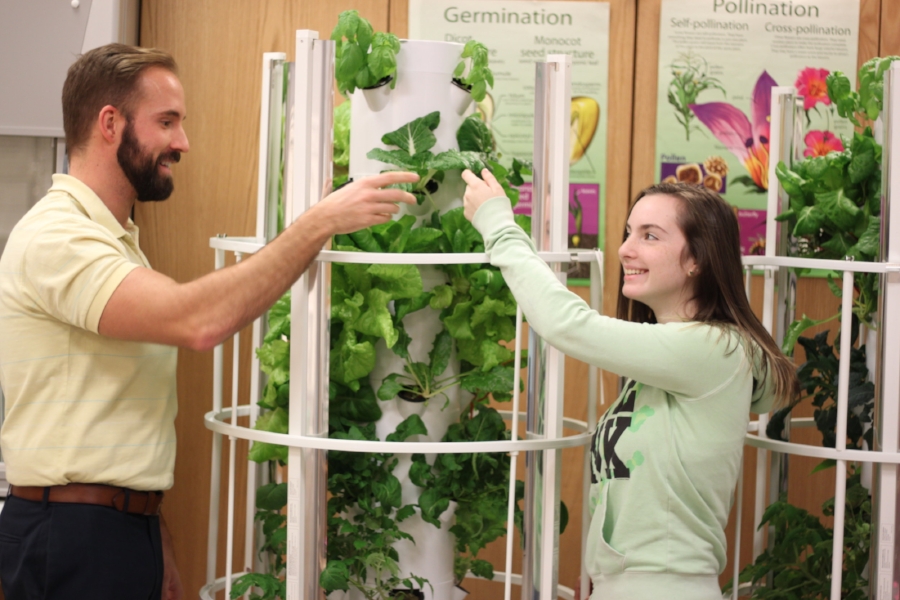Students growing crops in science classes, and harvesting them for school restaurant
Students in Whittier’s science classes have small farms growing beside them. Tomatoes, cucumbers, lettuce and other crops are growing vertically out of three Tower Gardens. The state-of-the-art, aeroponic growing systems are giving students in biology classes live experience with an ecosystem and the elements associated with growing cycles, and allowing students in culinary arts to harvest fresh vegetables and herbs to use in their cooking.
The goal is to acquire at least six more to fill the school’s greenhouse, said Assistant Principal Andrew Pigeon, who oversees the science department. The aging glass and block greenhouse, located off The Poet’s Inn restaurant, is being refurbished by masonry, carpentry and electrical students.
Students are enjoying the additions to their science labs. “It’s cool to see how fast they grow,” said Tacia Mansell, a freshman from Haverhill who was inspecting the leafy greens. “They are growing without dirt and no sunlight. A couple of weeks ago there was nothing, and now this.” The seeds were planted before the Thanksgiving recess and the first plants were harvested in December.
Teachers are rewriting parts of the biology curriculum to incorporate the gardens. “We teach the nitrogen and phosphorus cycles and their importance for ecosystems,” said Science Teacher Mr. Burke said. “It all starts with the plants.” Right now, freshmen focus on photosynthesis and sophomores learn the cycles. In addition, several students had not heard of basil, kale and Swiss chard so the gardens could be a launching point for healthy eating, he said.
The growing systems, sold by Juice Plus+ Company of Tennessee, grow seeds in pseudo soil packs called rock wool. Water gets pumped from a 20-gallon tank through tubes to the top of the tower every 45 minutes which then trickles down like a waterfall showering the roots. They are lined with fluorescent lights and nutrients such as nitrogen and phosphorus are added regularly.
The garden towers are popular among city residents who have limited space for gardening. They take up 90 percent less space and water than a conventional garden, according to the company website.
Students in the culinary arts program have already harvested basil for use in the Poet’s Inn, and there will soon be more. Along with the tomatoes and cucumbers, the leafy, mixed greens of Swiss chard and two types of kale are overflowing from the gardens. Next year, students will be responsible for the care of the plants and will experiment with different lighting and nutrient levels.


